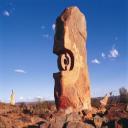Yahoo Clever wird am 4. Mai 2021 (Eastern Time, Zeitzone US-Ostküste) eingestellt. Ab dem 20. April 2021 (Eastern Time) ist die Website von Yahoo Clever nur noch im reinen Lesemodus verfügbar. Andere Yahoo Produkte oder Dienste oder Ihr Yahoo Account sind von diesen Änderungen nicht betroffen. Auf dieser Hilfeseite finden Sie weitere Informationen zur Einstellung von Yahoo Clever und dazu, wie Sie Ihre Daten herunterladen.
Would we be better off trying to find a way of deflecting asteroids before we try going to Mars?
Asteroid 2014 J025 (the rock) missed us by just over 1 million miles yesterday. They have known about it for some time, but I suspect not long enough to do anything about it should it have been on a collision course. However, another asteroid 1999 AN10 is due to come close to us in 10 years time. Do you think we should be working out a way to see if we can actually do anything about changing its orbit (even though it's not going to hit us), in preparation for a future asteroid that was actually going to collide? Sort of like a dummy run. I think that logically we should be spending money on this, rather than manned missions to Mars, and I bet it would be an awful lot easier to do as well.
9 Antworten
- Anonymvor 4 Jahren
Scroll down
Show more
- vor 4 Jahren
Yeah probably mate but the only problem is that these things are almost pitch black so cant be seen when coming from certain areas of space or come around the Sun quickly in our terms. Saying that a very large one probably would be detectable longer in advance (but not definitely) but the tech would have to be there to destroy it. As others have said, being able to have the craft and tech etc to go to Mars would suggest being able to do this or be an aide to it. A million miles is a long way too mind, 4 times further than the moon. 50 odd times further and itd be on Mars.
- Gary BLv 7vor 4 Jahren
WOW.
The Moon is only 250,000 miles away
That asteroid was 4 times farther away than the moon, and you are SCARED of it???
- vor 4 Jahren
I would guess the technology needed to get to - and deflect - Earth-smashing asteroids would be a derivative of Man trying to get to Mars.
- Wie finden Sie die Antworten? Melden Sie sich an, um über die Antwort abzustimmen.
- Brigalow BlokeLv 7vor 4 Jahren
Is it possible that the technology needed to get humans to Mars, whether or not you agree with it, just might also be useful in intercepting asteroids at some vaguely similar distance from the Earth?
- ?Lv 7vor 4 Jahren
The only sensible way to deflect an asteroid is to change its path by means of gravitational assists and that would require decades to alter the asteroid's orbit.
- DavrosLv 7vor 4 Jahren
JUST over a million miles? So... more than 4 times the distance to the Moon then.
That's akin to a sniper missing you by 3 blocks and going "Phew, that was a close one!"
Trying to change the course of an asteroid that isn't going to hit us strikes me as interesting but comes with risks. What if you inadvertently put it on a collision course? NASA was investigating such a project with the Asteroid Redirect Mission but has recently been cancelled due to budget cuts. https://en.wikipedia.org/wiki/Asteroid_Redirect_Mi...
In my opinion tracking is the key technology in planetary defence, not intervention. We should be expanding our ability to discover and monitor objects on a regular basis. Currently sky cover is patchy and discovery of NEOs is more about scientific interest than hazard avoidance.
What is really feared isn't the huge planet killers - those are very rare and anything large enough to wipe out life on Earth is pretty easy to detect. It's the little buggers which we don't spot until the last minute that pose the most danger. With better tracking we can find them sooner and keep tabs on them. If there is a chance of impact a decent projection of the orbit can tell us the time and place that the rock will strike. If any intervention attempts do not succeed or are not feasible at least a complete evacuation can be arranged for the stricken region so nobody needs to get hurt.
I don't disagree that asteroid or cometary strikes are dangerous, but their rarity makes elaborate preparations for deflection an awful lot of upfront cash for something that may not be needed any time in the next 50,000 years. Learning to move asteroids for our own purposes is useful though, especially if mining them ever becomes a serious proposition.
I'm not sure why it's an either/or issue with Martian exploration. Surely there is nothing to stop us doing both asteroid research and planetary science? Anything complex we attempt to do in space (and they don't come much more complex than trying to put us canned meatbags on Mars) expands our capabilities and competence. Who's to say we don't learn the vital engineering skills needed to deflect large asteroids as a result of Mars missions?
The expense of these things is relative if you consider that NASA's annual budget is $19 billion whereas the annual US military budget is $600 billion.
- vor 4 Jahren
I don't think there's any possible way for us to find a way to deflect an asteroid. Instead, we should work on fixing the poverty and crime issues around the world, instead of wasting the needed money on a mission to freaking Mars.






